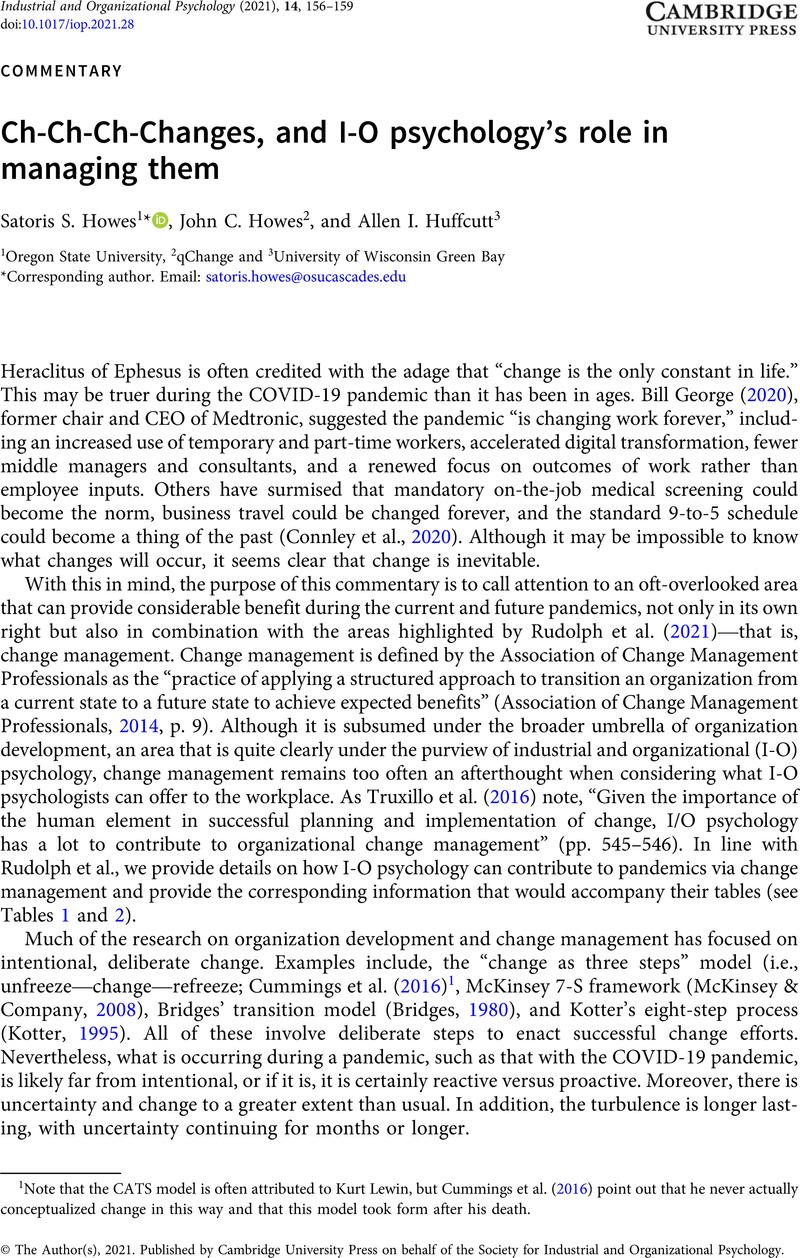Crossref Citations
This article has been cited by the following publications. This list is generated based on data provided by Crossref.
Schowalter, Annika F.
and
Volmer, Judith
2024.
Servant and Crisis Manager? The Association of Servant Leadership with Followers’ Adaptivity and Proactivity.
Journal of Leadership & Organizational Studies,
Vol. 31,
Issue. 4,
p.
433.



